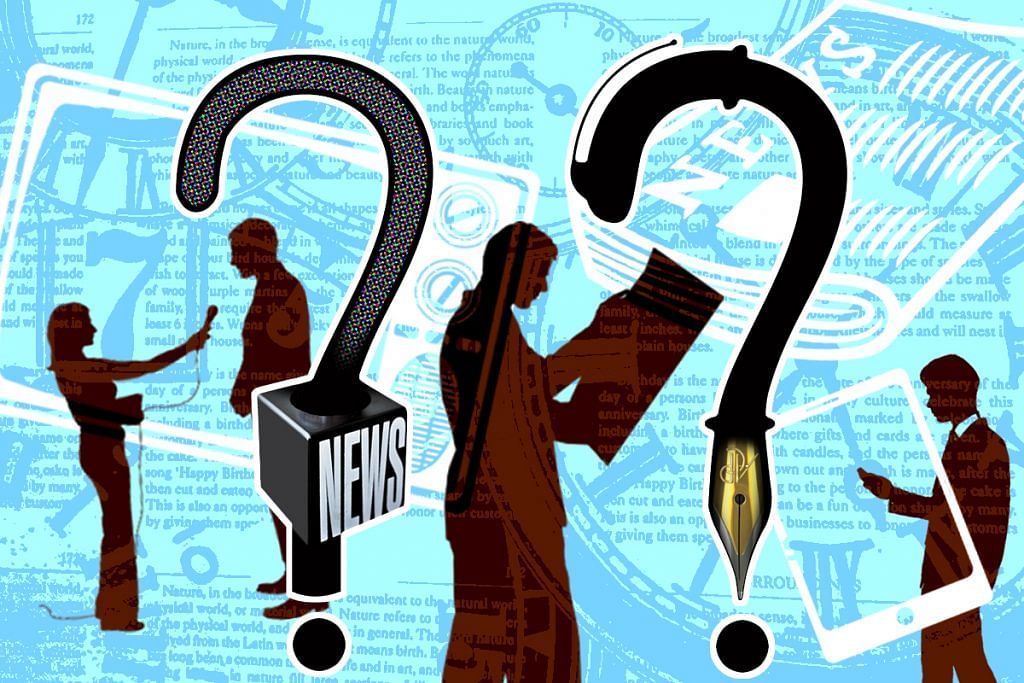The media is less into fact-finding, as reporting has got fused with commentary. So you choose both your opinions as well as your facts.
Thirty-eight years ago, in January 1980, Indian psephology was born when India Today commissioned Prannoy Roy and Marg, a market research firm, to do an opinion poll in the run-up to the Lok Sabha elections. The Roy-Marg forecast was that Indira Gandhi (still hated by many because of her Emergency record) would come right back with a two-thirds majority in the House. This was something that no reporter on the election beat was saying. The pundits in the media derided the poll, till the results vindicated it.
History was repeated five years later when the next nationwide opinion poll forecast a landslide for Rajiv Gandhi. Once again, the press was caught flat-footed. Psephology is an inexact science, and has had its ups and downs since then; but, in general, it has tended to be a more reliable barometer of voting behaviour than your average hack (honourable exceptions always exempted).
The problem then was that the reporter’s standard technique of talking to taxi drivers and people in wayside tea shops, assessing the size and enthusiasm of crowds at rallies, and talking to the candidates, was a seriously defective approach when it came to catching the straws in the wind. Vote swings of a couple of percentage points (which is all there usually is, from say 41 per cent to 43 per cent) cannot be accurately gauged by such rough and ready methods. The problem today is different: The media (especially the electronic and digital media) is less into fact-finding, as reporting has got fused with commentary. So you choose both your opinions as well as your facts. That invites questions of credibility.
The nature of our highly differentiated media outlets being what it is, some TV channels or websites might care two hoots for such issues as credibility. Certainly, the pro-Hindutva TV brigade (comprising mostly Hindi language outfits) sees itself as a cheerleader for the BJP. Since they have no illusions or pretensions, perhaps there is nothing more to be said. The anti-crowd (mostly in the English language), in contrast, is so consumed by its angst that it cannot see how uniquely popular Narendra Modi is.
In one state election after the next, the handwringing bunch (with rare exceptions) has been busy forecasting Modi’s comeuppance, only to invariably come up against unwelcome reality. We don’t as yet know the outcome of the Gujarat elections, but the odds must be in favour of a BJP victory, given that both pre-election surveys as well as exit polls have sounded the conch shells. Is that what your favourite TV channel or website told you ahead of the voting?
Admittedly, this is the one state election where you could cite good reasons for the BJP to be on the back foot: lacklustre chief ministers, the damage done by demonetisation, farmer distress, the disruption caused by the goods and services tax, and caste-based agitations. That Modi’s own campaign speeches touched some low points only strengthened the perception of the BJP being on the back foot. Except that this is Gujarat, it has been the BJP’s bastion for more than two decades, it is Modi’s home state, and the Modi-Shah duo goes for broke in every election. Also, the BJP’s past victory margins have been so large that the party could afford to lose some voters to the opposition. So did one’s choice of facts reflect bias?
There is room in a democracy for partisan media—that’s the point of a free press. Britain has pro-Labour and pro-Tory newspapers. And Republicans in the US have long complained about that country’s liberal media—most media outfits and journalists are in states like New York and Massachusetts that vote Democrat. In India, how much if at all does bias depend on the language of the journalist? Is the bulk of the media socialist in orientation? And partisan or independent? Perhaps it doesn’t matter so long as one can and will speak truth to power. But as in the case of the now-famous death of a judge, was it truth at all?
By Special Arrangement with Business Standard
